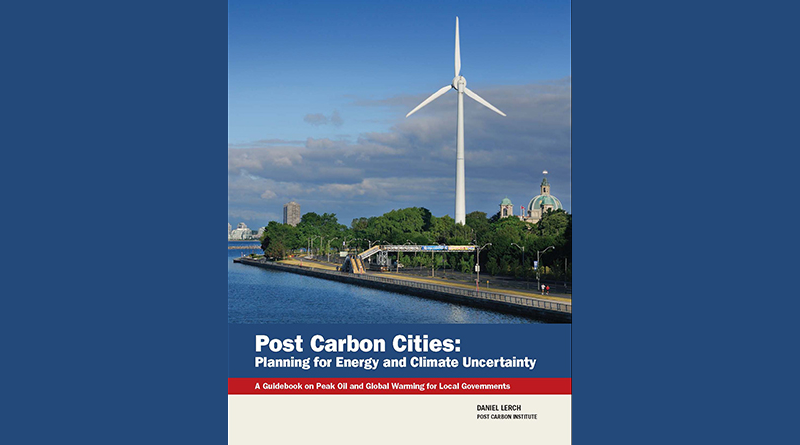Post Carbon Cities: Planning for Energy and Climate Uncertainty. (2007). Daniel Lerch, The Post Carbon Institute.
Post Carbon Cities provides a sobering view of the realities faced by local governments with fading energy supply (peak oil) and global climate change; this straight-forward guidebook can be a valuable resource for local decision makers who want their municipalities to remain economically and environmentally viable during this uncertain period. Lerch presents his arguments directly, convincing the reader of the coming crisis while he provides hope by outlining opportunities that can be taken to address the problem now. Post Carbon Cities demonstrates why local governments cannot rely solely upon higher-level government, and how it is in their best interest to plan now for this uncertain future. In fact, local governments have strong links to their citizens and exercise control over areas such as building construction and efficiency, land use and transportation patterns, and local economic activity. These powers, unique to municipal agencies, allow them the opportunity to be quite effective at addressing the situation. Among the recommendations offered by Lerch are to establish a volunteer-based peak oil task force, to enlist municipal staff and business leaders to help identify and mitigate local vulnerabilities to a volatile oil supply, and to apply systems thinking (a holistic approach to problem solving) at the local level. He also presents supplemental resources, case studies, and lessons learned from cities and towns that have already begun preparing for these impending changes.

